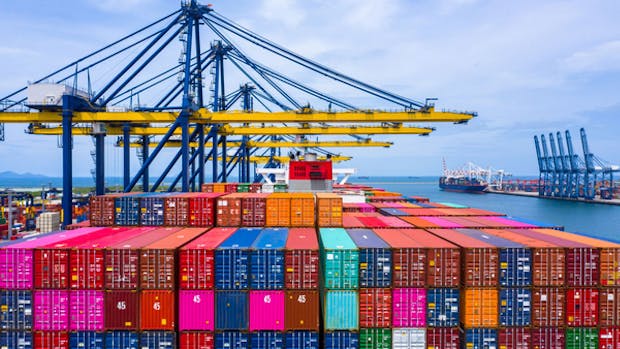Blockage in the Suez Canal severely threatens the maritime supply chain

Geneva, 26 March 2021 – FIATA notes with concern the severe disruptions caused by the blockage of the Suez Canal by the 20,000 TEU container ship MV Ever Given, which ran aground on Tuesday, 23 March 2021. Attempts to free the vessel have so far been unsuccessful, and it is expected that this will continue for at least another week. As one of the world’s busiest waterways, this is expected to have severe repercussions for international trade.
As previously underlined by FIATA, the maritime supply chain is already undergoing severe disruptions, exacerbated further by the ongoing COVID-19 pandemic. The situation is expected to worsen dramatically in the light of the current blockage of the Suez Canal over the coming weeks. Many vessels will likely need to re-route around the Cape of Good Hope, adding additional transit times of approximately four to seven days. A likely increase in the speed of the vessels to mitigate the delayed transit times will increase fuel consumption, and this may also incur further container surcharges.
Terminals will therefore experience high congestions and the severe drop in vessel arrival and container discharge in major terminals will aggravate the already ongoing shortages of empty containers available for exports. Already, shipping lines have begun to stop export bookings for affected services. High delays in shipments, increased costs, and product shortages are therefore expected.
Jens Roemer, Chair of FIATA’s Working Group Sea Transport, stated:
“The situation remains uncertain and we have no information of substance that would allow for proper planning. The fact is that an already heavily disrupted maritime supply chain has taken another hit that will further affect its fluidity, with long-term consequences related to congestions, lead times and predictability. We are afraid that effects will not only be limited to the Europe to/from the Far East and Oceania trade lanes, because domino effects cannot be avoided. We expect shipping lines to adopt demurrage and detention practices that are in line with the 'FMC Docket No. 19-05, Interpretive Rule on Demurrage and Detention Under the Shipping Act' that FIATA further elaborated on in its dedicated toolkit, rather than enforcing unfair conditions on other stakeholders.”
FIATA is monitoring this closely and is committed to providing guidance and support, as required, to its members. As the ‘Architects of Transport’, the freight forwarding industry is managing the supply chain through its know-how and the use of various modes of transport. Freight forwarders will be crucial to supporting shippers with tailor-made solutions related to other modes of transport such as rail and airfreight services, as well as a combination of sea/air shipments may offer solutions.
Media Contact
Claudia Marquina | Communications Officer
+41 22 715 4513 | [email protected]
About FIATA
FIATA International Federation of Freight Forwarders Associations is a nongovernmental, membership-based organization representing freight forwarders in some 150 countries. FIATA’s membership is composed of 109 Associations Members and more than 5,500 Individual Members, overall representing an industry of 40,000 freight forwarding and logistics firms worldwide. Based in Geneva, FIATA is ‘the global voice of freight logistics’ www.fiata.com.